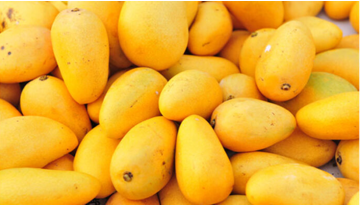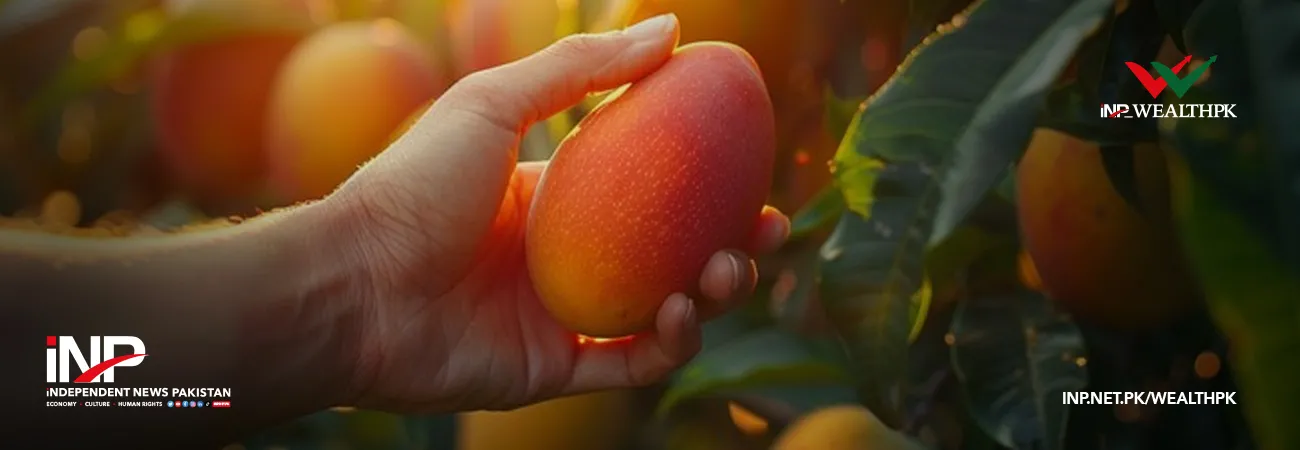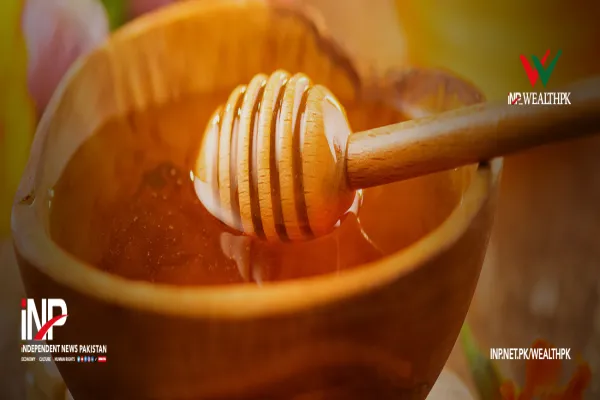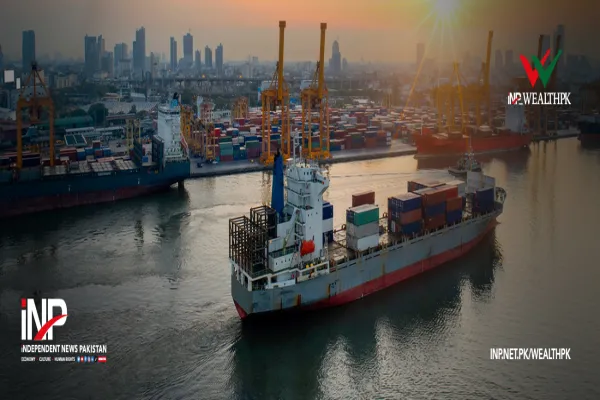i INP-WEALTHPK
Azeem Ahmed Khan
Mango growers in Punjab are facing severe production losses for the third time in four years, with experts warning that farmers must change their irrigation practices to protect orchards from rising heat stress.

“Climate change has shifted the heat pattern. To save the crop, farmers should stop watering the trees at the end of September instead of October, and restart irrigation from mid-January. This change will bring early flowering and help plants tolerate heat in March and April,” said Abdul Ghaffar Grewal, former director Mango Research Institute.
Talking to Wealth Pakistan, he said a survey across major mango-growing districts from Bhong and Rahimabad in the south to Kabirwala and Qatalpur in central Punjab showed production down by around 40% this year. The shortfall has reduced expected output from the 2023 normal level of 1.425 million tonnes to just 800,000-900,000 tonnes in 2025, he added.
Punjab’s mango belt, a 370-kilometre stretch covering 40 to 50 clusters of orchards, showed sharply different outcomes this season. While some varieties, such as Dussehri and Kala Chaunsa thrived, others including Chaunsa Samar Bahisht, Safaid Chaunsa and Azeem Chaunsa, suffered losses of up to 50% as flowers and young fruit withered under temperatures of 39 to 44 degrees centigrade in March and April.
The province’s most widely cultivated variety, Chaunsa Samar Bahisht, grown on 35% of orchards, was badly hit. “Almost half of the Chaunsa crop has been lost, which is a favourite local variety and a major concern for farmers,” Grewal noted.
He said that the damage pattern repeated earlier setbacks in 2022 and 2024, while only 2023 recorded a normal harvest. “Three out of the last four years have seen heavy losses. The reason is not only climate change but also our outdated practices,” Grewal said.
Farmers traditionally stop irrigation once flowering begins and do not water again until fruit develops, leaving trees exposed to early heat waves, he said. This practice accounts for significant losses; however, progressive growers who adjusted watering schedules showed better results this season, he added.
“The solution is simple but urgent: restart watering as soon as temperatures rise in March. Water acts as a shield against heat stress and can save a large part of the crop,” Grewal said.
In addition to irrigation changes, he has advised advancing cultivation practices by a month. “We must accept that what was once March is now April, and February is March. Adjusting our calendar is the only way forward,” Grewal said. Preparing orchards and retaining grass cover under tree canopies by late March helps reduce soil heat and protect plants during sudden temperature spikes, he suggested.
Punjab’s mango sector, spread across districts, including Rahim Yar Khan, Multan, Muzaffargarh and Khanewal, has already lost nearly half its production capacity compared to normal years, he said. The storm of May 24, this year, further damaged orchards in Kabirwala, Khanewal and parts of Muzaffargarh and Lodhran, adding to growers’ woes, he added.
Grewal warned that, unless farmers adopt climate-resilient practices, the frequency of losses is likely to continue.
Credit: INP-WealthPk







